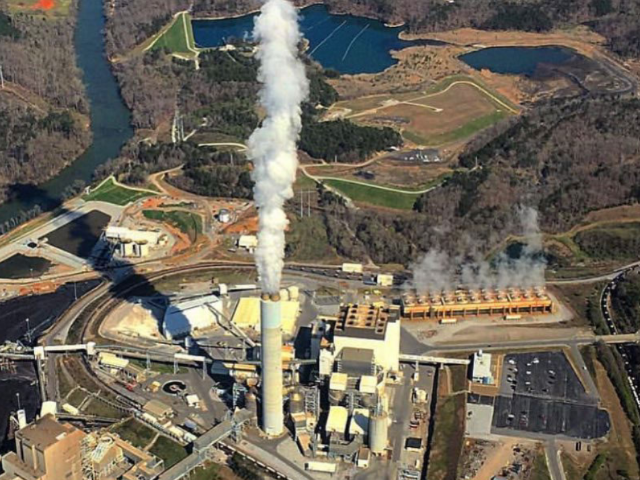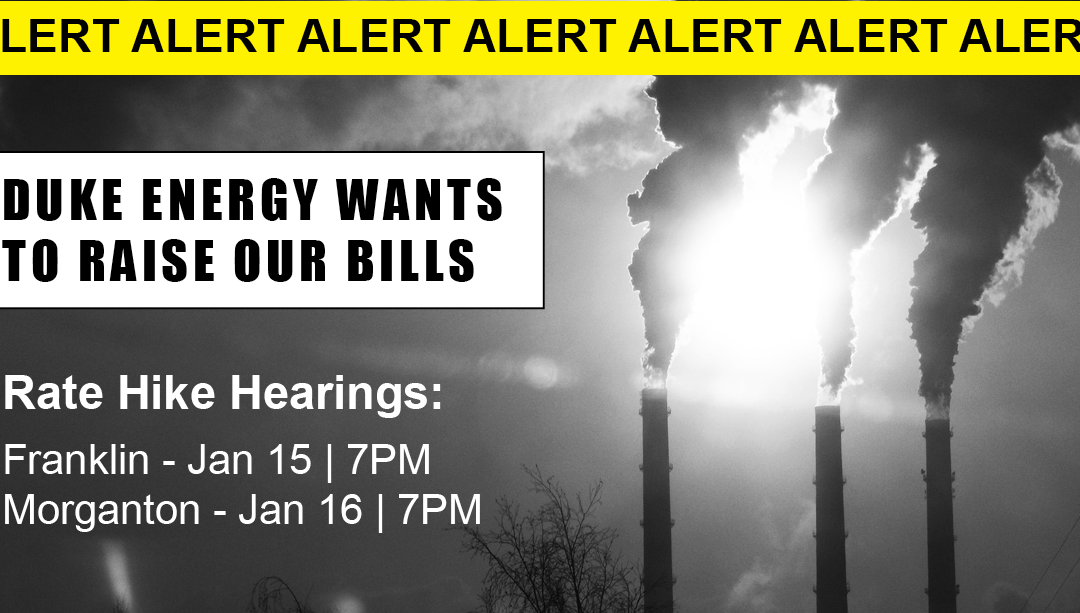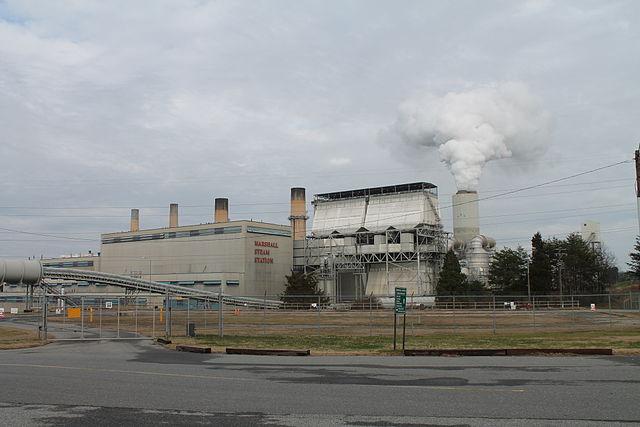
Tell the NC Utilities Commission: Enough is Enough. No More Duke Rate Hikes For Dirty Energy.
Tell the NC Utilities Commission: Enough is Enough. No More Duke Rate Hikes For Dirty Energy.
Action Expired
Duke Energy is trying to raise our electric bills to pay for dirty energy. Again. The company’s latest rate hike proposal would increase residential rates by 6.7% – or about $97 more per year for the average electricity user.
Duke should be investing in solar and wind energy on a massive scale in response to the climate crisis. Instead, Duke’s proposal lacks any direct investment in renewable energy and would raise our rates to burn more gas, create a “deferral” account of up to $2.5 billion for Duke to access in a future rate hike, and call for customers to foot the bill to clean up coal ash – even though Duke knew this coal ash was toxic as far back as the 1980s, and never acted to dispose of it properly. The rate increase would also come only two years after Duke’s last rate hike, and would be the company’s fifth rate hike in 10 years.
It’s time for the North Carolina Utilities Commission to put an end to this behavior. Take action below to tell the NC Utilities Commission: No more Duke rate hikes for dirty energy.
More About This Rate Hike Proposal
Cost
- Duke Energy wants to collect $290.8 million more from customers each year – an overall 6% increase.
- If approved, residential electric rates will rise by about $8.06 per month for a typical customer. That means the average monthly bill would increase to about $116.26.
Burning More Gas
- The rate hike would pay for Duke to convert more coal plants to be able to burn on gas in addition to coal.
- Duke should be investing in solar and wind energy on a massive scale as a response to the climate crisis. Instead, Duke is trying to recover costs for about $278 million spent for retrofitting coal units at its Belews Creek and Cliffside plants to allow them to burn gas as well as coal.
- Our climate can’t afford more gas plants. Natural gas burns methane, and methane is a more potent greenhouse gas than carbon when it leaks from pipeline infrastructure. And this infrastructure is leaking at every step of the way – from wells, to leaks at pipelines and compressor stations.
-
- Methane is 87 times more potent of a greenhouse gas than carbon dioxide during the time it remains in the atmosphere.
- A recent study published in the journal Science found that the U.S. oil and gas industry emits 13 million metric tons of methane from its operations each year—nearly 60 percent more than currently estimated by the EPA.
- While the rate hike includes a plan to phase out coal-burning at Duke’s Cliffside Unit 5 by 2026, the plan for the retrofit sets up this unit transitioning to starting to burn gas at that time. The climate science has made it clear that we cannot afford a timeline that will prepare more gas plants to begin burning well into the 2020’s. Instead, Duke should replace the Cliffside coal unit with renewable energy such as solar or wind.
Cost Deferral Account for Grid Modification
- Duke wants to set up a “cost deferral” account to pay for up to $2.5 billion that it expects to spend over the next three years on grid projects. While Duke is not seeking to fund that account in this rate case, they have said they’ll seek recovery of those costs in their next rate case a few years from now.
- The General Assembly denied Duke the ability to charge customers for future costs in their highly controversial bill SB559 this year. Now, Duke is trying another path to be able to forward the bill for these costs – but setting aside funds for estimated future costs reduces the transparency and accuracy regarding how the public’s money is spent.
Costs Related To Coal Ash
- Duke wants customers to cover their tab for the cost of cleaning up their coal ash mess over the last two years – $123.6 million over five years. These are costs associated with coal ash cleanup at the Allen, Belews Creek, Buck, Cliffside, Dan River, Marshall, Riverbend, and W.S. Lee sites incurred since January 1, 2018.
- Duke also wants customers to pay $689 million to cover the company for upgrades to deal with bottom ash treatment, wastewater processing, and lining retention basins.
- You might recall that Duke’s insurance company has refused to pay for costs associated with Duke’s coal ash cleanup because “Duke failed to take reasonable measures to avoid and/or mitigate” the damages resulting from coal ash disposal. As a result, they’re turning (once again) to the NC Utilities Commission for permission to pass the cost of their mess on to customers.
- In 2015, three Duke Energy companies including Duke Energy Carolinas plead guilty to nine criminal environmental violations for their failure to protect NC waterways from coal ash pollution.
- In 2018, it was revealed that Duke was aware of the harms of coal ash beginning in the 1980’s, but did not begin to take precautions.
- Because Duke Energy is a state-sanctioned monopoly in North Carolina, ratepayers neither have power over Duke Energy policies, nor the option of using a different electricity provider. It is simply not just or plausible for customers to keep getting their rates increased every couple of years while they are legally prevented from choosing a different company for their electricity needs.
Duke Should Pay
- In 2018, Duke had a net income of $3.03 billion but paid no federal taxes. In fact, the company is owed $647 million by the federal government.
- Compensation for Duke’s CEO Lynn Good more than doubled in 2017.
- In the years since Hartwell and SELC sent Duke Energy a 60-Day Notice of Intent to address Clean Water Act violations on the French Broad River on Jan. 24, 2013:
-
- Duke Energy’s CEO Lynn Good and her four EVP’s have taken home a combined $151,453,920 in compensation.
- Duke Energy’s Board has taken home compensation of $24,689,284.
- Duke Energy has issued a combined total of $16.707 billion in dividend payments to its shareholders.
Sources
Duke Energy Carolina’s Rate Case Filing: https://starw1.ncuc.net/NCUC/ViewFile.aspx?Id=c69824e6-f9cd-4895-a5cf-53272ffbcd51
“Here’s how much Duke Energy is seeking to raise utility rates in North Carolina” https://www.bizjournals.com/charlotte/news/2019/09/30/heres-how-much-duke-energy-is-seeking-to-raise.html
“Summary for Policymakers of IPCC Special Report on Global Warming of 1.5°C approved by governments” https://www.ipcc.ch/2018/10/08/summary-for-policymakers-of-ipcc-special-report-on-global-warming-of-1-5c-approved-by-governments/
“The False Promise of Natural Gas” https://www.nejm.org/doi/full/10.1056/NEJMp1913663
“‘No chance’ on making Duke absorb coal ash costs, North Carolina GOP says” https://www.utilitydive.com/news/no-chance-north-carolina-gop-says-on-making-duke-absorb-coal-ash-costs/552326/
“Duke Energy CEO Lynn Good sees 55 percent jump in compensation” https://www.charlotteobserver.com/news/business/article204293519.html
“Attorneys: Duke knew about coal ash concerns in 1980s, didn’t act” https://www.wral.com/attorneys-duke-knew-about-coal-ash-concerns-in-1980s-didn-t-act/17147405/
“Methane Matters: Scientists Work to Quantify the Effects of a Potent Greenhouse Gas” https://earthobservatory.nasa.gov/features/MethaneMatters
“Dividends – Duke Energy” Duke Energy, https://www.duke-energy.com/our-company/investors/stock/dividends-duke-energy
“These Charlotte companies paid no federal taxes in 2018, despite posting big profits” Charlotte Business Journal https://www.bizjournals.com/charlotte/news/2019/12/19/these-charlotte-companies-paid-no-federal-taxes-in.html





